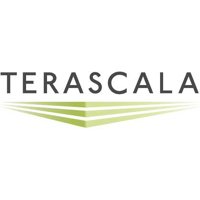 Today Terascala announced that the University of Maryland, Baltimore County (UMBC) HPC Facility is using the company’s software to manage Lustre-based parallel storage.
Today Terascala announced that the University of Maryland, Baltimore County (UMBC) HPC Facility is using the company’s software to manage Lustre-based parallel storage.
UMBC is developing new, innovative methods to data mine satellite measurements and optimally measure very small changes in climate, especially when averaged over the globe,” stated Dr. L. Larrabee Strow, research professor of physics at UMBC. “These methods are feasible only if the data can be quickly accessed. The high performance Lustre storage system at UMBC makes it possible.”
Terascala’s certified software stack monitors the health and performance of the storage appliance and raises alerts, so that bottlenecks can be eliminated. UMBC faculty and researchers count on the Dell | Terascala HPC storage solution for raw bandwidth and high IOPS. In the future, UMBC infrastructure thought leaders plan to consolidate faculty and students, who are involved in applicable research, on the fast, Lustre-based storage appliance and thereby move away from slower, scale-out enterprise storage.
Immense data sets are being funneled by NASA to UMBC from the Atmospheric Infrared Sounder (AIRS), which is a satellite instrument that measures infrared radiation emitted by the earth’s surface and atmosphere. The measured radiances are sensitive to a host of geophysical variables, including atmospheric temperature and humidity profiles, surface temperature, cloud density, and a range of gases including carbon dioxide, carbon monoxide, methane, ozone, and nitrous oxide. Over time, AIRS has produced a fourteen-year record of the earth; this Big Data is crucial for understanding and measuring climate change.
Terascala-powered appliances are turnkey, which has kept our total cost of ownership low, compared to rolling our own Lustre and hiring staff to support a large system,” explained Damian Doyle, director of enterprise infrastructure and support. “If any issues arise, the appliance phones home to Terascala support to remediate in the background—without service interruption. We have been very pleased with the reliability and plan to expand the Lustre use model across HPCF.”



